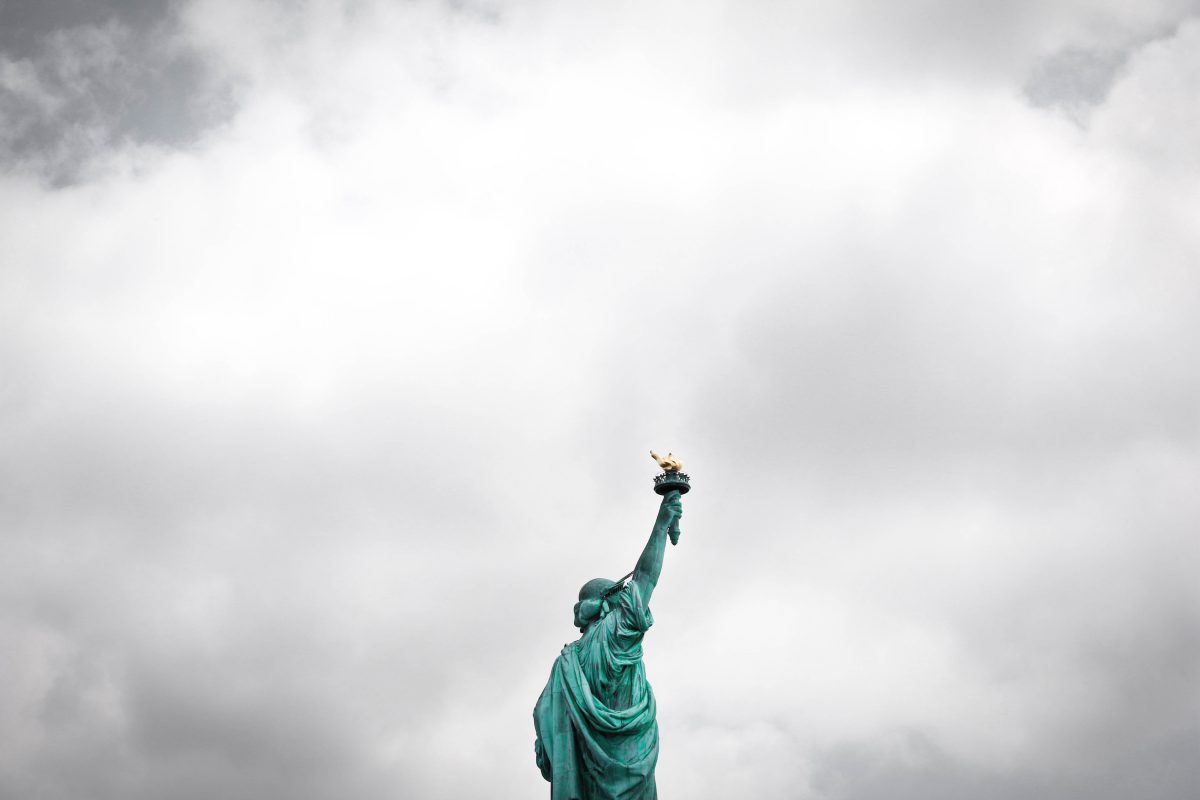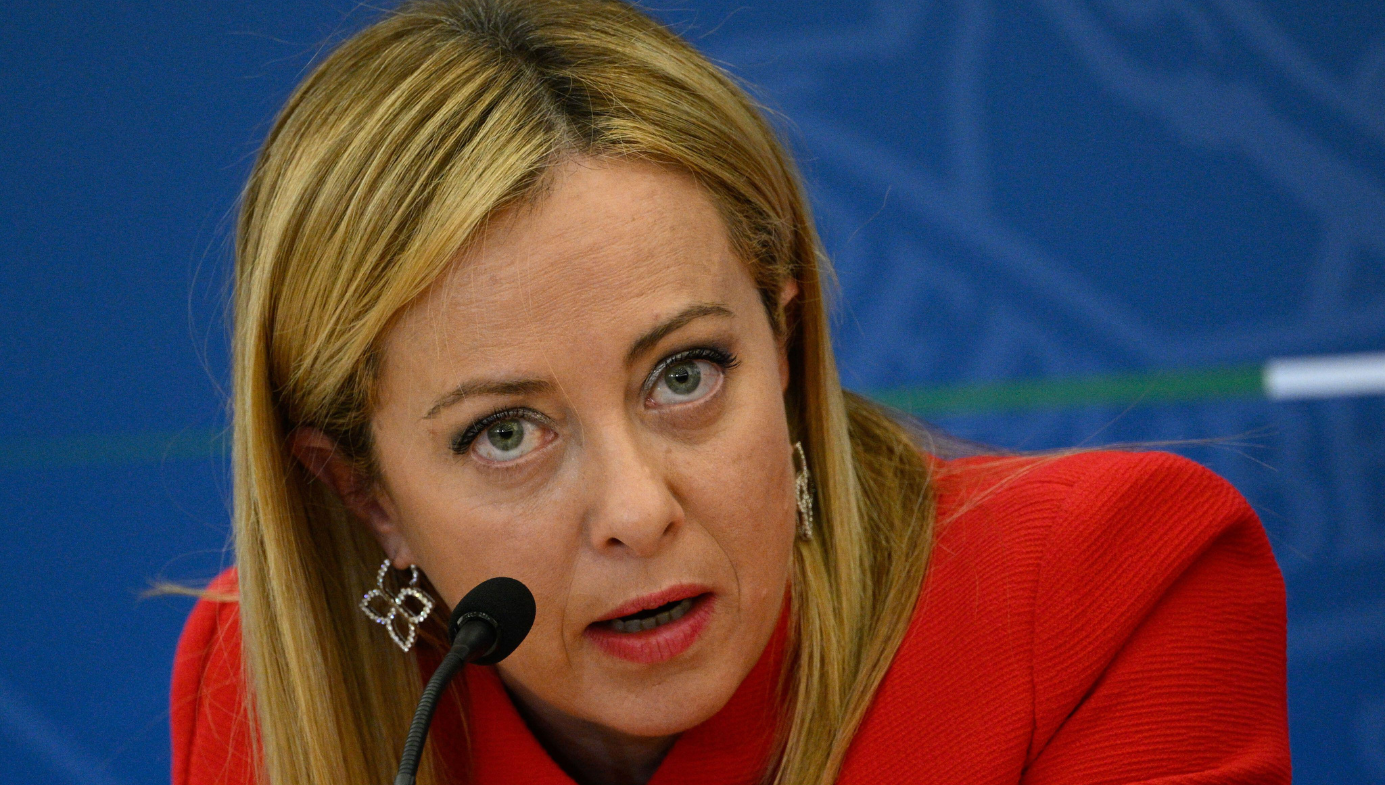Must Reads
Politics Are Not the Sum of a Person
Politics is important, but it is only a means to an end. Human flourishing, or the good life, is the proper end of social life.

In a letter to his wife Abigail during America’s War of Independence, John Adams described the necessity of politics:
I must study politics and war, that our sons may have liberty to study mathematics and philosophy. Our sons ought to study mathematics and philosophy, geography, natural history and naval architecture, navigation, commerce and agriculture in order to give their children a right to study painting, poetry, music, architecture, statuary, tapestry and porcelain.
For a country fighting for independence and a man risking his life for the cause, there is little to life beyond politics of the moment. Every marginal decision is a matter of survival. But that momentary imperative is only in pursuit of higher humanistic goals.
Politics is important, but it is only a means to an end. Human flourishing, or the good life, is the proper end of social life. Government plays but a part in laying the foundation for people to flourish in society. Like Adams, we want a relatively stable and effective regime so we can be free to pursue better, more satisfying things.
Unlike Adams, we have the space and luxury of pursuing all of them today — even if the political radicals say otherwise. Family and friendship, economic prosperity, scientific and technological progress, medical advances, the arts and entertainment, and much more. There is far more to life than politics. We study it only so we don’t have to worry about it very much. We owe it to our forefathers to not allow it to overtake the finer things in life.
At the start, I should concede the irony of these words being written by a political junkie who thinks, reads, talks, and writes about the topic frequently. And, well, maybe I should write more about baseball, corn processing, and East Village dive bars. But that’s not really my point. We shouldn’t ignore politics. Politics is important, complex, interesting, and yes, often fun. We need a few people to devote most of their time to it, and most people to devote a little of their time to it. However, we should never fail to contextualize and delimit its influence on our daily lives, relationships, and society more broadly. That would be the true tragedy and is what I want to draw attention to.
There is more to a person than his or her politics
It is well-documented that politics have become more polarized in recent years. In 2016, it reached a fever pitch. To be sure, it’s not 1861. Thank God. It may not even be as bad as 1968. But these days are certainly not conducive to civility.
Pro-Trump supporters at a rally in Portland in June 2018. Photo: Andy Ngo
I’m not here concerned about ideological polarization, but rather the personal and cultural animosity that seems to be more common and more frenzied than it used to be. Everything political gets turned up to 11. Less “you’re wrong,” more “you’re a bad person.” Less listening and reading and intermingling with those of different politics, and more self-segregation.
It seems that people increasingly allow political disagreement to obfuscate friendships, business, and other personal relationships. For example, 13 percent of all Americans, and 30 percent of Democrat women in particular, reported “blocking” friends on social media due to their politics. Another poll reported 16 percent of Americans stopped talking to a “family member or close friend” because of the election.
A CNN poll found that a 31 percent of Democrats and 22 percent of Republicans have limited interactions with friends or family because of politics. In 1958, it is shown that less than a third of partisans said they would prefer their child to marry someone of the same party. Whilst today, more than 60 percent of partisans say that.
Just imagine:
“Sir, I respectfully ask for your daughter’s hand in marriage.”
“Ok, but first tell me whom you voted for.”
What a sorry state that so many people are closing themselves off to others for such narrow reasons. To be clear, I am not admonishing hard-nosed, substantive debate. In fact, I love it. I am not even so concerned with the occasional personal dig, if it is not so out of line or disruptive. What worries me is politics sabotaging personal relationships and becoming the primary way by which people evaluate others.
Which brings me to my main point:
Politics are not the sum of a person
There is so much more by which to judge a person than his or her politics. Honesty, thoughtfulness, compassion, judgment, industriousness, prudence, self-control. Their interests, aptitudes, personality, piety, and sense of humor. Human virtue is so vital, vast, and multidimensional that it would be foolish to excessively personalize and overemphasize a person’s politics. Not to mention, most people don’t even spend more than a little time and energy considering politics, so how could it be central to their character? Most people obviously realize these things, but fewer people are acting on it. Shared experience and common ground —outside of the politics — is key to reminding people of this truth.

I, a conservative, count myself lucky to have been surrounded by liberals for most of my life in Connecticut, Illinois, and New York. Among my strongest influences were my smart, left-wing teachers who debated me relentlessly in middle school and high school. The intellectual challenges they provided built me up and made me stronger over time by breaking down my beliefs in parts constantly. Similar was the influence of my liberal peers in high school and college. The clear majority of my friends today lean left politically. I am constantly inspired by the mostly-liberal teachers and administrators at the charter schools I am involved with who do God’s work every day by lifting up children in need. I could go on. It is a blessing to have all these people in my life. I would be a lesser man without their influences.
But as Americans increasingly cluster by political ideology, these fulfilling and humanizing interactions across the proverbial aisle become less common. “The big sort,” so-named by Bill Bishop, is the phenomenon of America becoming more culturally — and, consequently, politically — polarized by geography since the 1970s. In the competitive presidential election of 1976, 27 percent of Americans lived in counties with at least a 20-point margin of victory. In the competitive election of 2016, a whopping 60 percent did. To illustrate for New Yorkers, the last major-party presidential candidate to receive fewer total votes in Manhattan than Donald Trump was Rutherford B. Hayes in 1876. And yet, there is a world west of the Hudson River.
There is more to society than politics
Exacerbating the big sort is the degradation of social institutions that might otherwise bring people of different persuasions together. Not only do fewer conservatives and liberals live next to each other, but those who do share fewer bonding experiences. Participation has withered over decades in civic organizations and churches that have traditionally connected people. Robert Putnam has famously measured this:
Membership records of such diverse organizations as the PTA, the Elks club, the League of Women Voters, the Red Cross, labor unions, and even bowling leagues show that participation in many conventional voluntary associations has declined by roughly 25 percent to 50 percent over the last two to three decades…
Gallup polls report that church attendance fell by roughly 15 percent during the 1960s and has remained at that lower level ever since, while data from the National Opinion Research Center suggest that the decline continued during the 1970s and 1980s and by now amounts to roughly 30 percent.
We are now less de Tocqueville’s Democracy in America and more Putnam’s Bowling Alone or Murray’s Coming Apart. And while Americans remain more civically engaged than people in most countries, the decline over time makes it harder to bring people together today.
One tail risk of these trends — political violence — need to be minded even if it is unlikely. Only 70 percent of American adults under 30 believe it is not at all justified to use violence to pursue political goals, compared to roughly 90 percent of seniors, according to the American National Election Studies. The stakes here are not insignificant.
If the micro solution to America’s divisions is to emphasize people’s virtues over their politics, the macro solution is to revive American civil society and culture outside of politics. That is obviously a complex imperative whose exploration has killed many a tree. And it should still beckon even more attention and urgency.
But I will focus on just one problem in civil society, which is the invasion of politics into nearly every crevice of our culture.
That leads to my secondary point:
Just as politics are not the sum of a person, politics is not the whole of society
Almost all meaningful human interactions, relationships, and achievements occur outside of politics — in the market economy and in civil society. Family, friendship, work, religion, charity, community, and culture are where human happiness is forged.
And, yet, we find politics trying to insert itself into more nooks of culture today. Sports, entertainment, pop culture, corporate America, and civic organizations are prime targets. College campuses are probably lost entirely to perpetual outrage. Among important and growing segments of the population, there is a metabolic urge to politicize things that have little, if any, relation to politics.

The only difference between Hollywood award shows and the Democrat National Convention is slightly more Botox. ESPN has nearly as many hot takes about social issues as sports. Silicon Valley, the NFL, NBA, and NCAA have made their politics decidedly known while other big businesses are frequently pressured to opine a certain side of a political issue — or else. Hell, journalists even scour small Indiana towns for political heterodoxies of small business proprietors. Dave Chappelle, Chris Rock, Jerry Seinfeld and others can’t do comedy without making waves for being insufficiently political. The list goes on and on.
Why is this a problem? Because these institutions bring people joy and unite them across dividing lines — like politics. The best way to build bridges is not to first focus on schisms, but on commonalities. It’s harder to hate your political opponent when you find out he roots for the same basketball team, laughs at the same comics, enjoys the same movies, consumes the same brands — all of which should be decidedly apolitical. You are more likely to empathize with them, and then — maybe — you ease into politics more civilly.
Final thoughts
The proposal for reasonable disarmament in the culture wars will go a long way solving not only problems national, but individual. There is something mentally burdensome about censoring all your personal associations by their politics. Taken to an extreme, it seems paranoid. NYU psychologist Jonathan Haidt and FIRE president Greg Lukianoff wrote about the consequences of this thinking in their essay, The Coddling of the American Mind:
A campus culture devoted to policing speech and punishing speakers is likely to engender patterns of thought that are surprisingly similar to those long identified by cognitive behavioral therapists as causes of depression and anxiety. The new protectiveness may be teaching students to think pathologically.
If you do not care about the national effects of the alternative I have presented, I still believe you should want it for yourself and loved ones. Closing yourself off to people with whom you disagree mollycoddles in the short run and makes you intellectually weak in the long run. It would be like bodybuilding while ignoring weights. It doesn’t work.
I would not be writing this if I did not have some of the tribal urges in me, nor if I had never been guilty of acting on them before. Such inclinations are natural to most of us. As a true believer in my politics, I am susceptible to extrapolating them.
But I am also fortunate that I am not able to do that so much by virtue of my surroundings. My hope is that those who do live in ideological “bubbles” of their own persuasion won’t let that get the best of them and turn further inward. And while accomplishing that might not be an easy task, it will go a long way to creating happier people and a healthier country.






